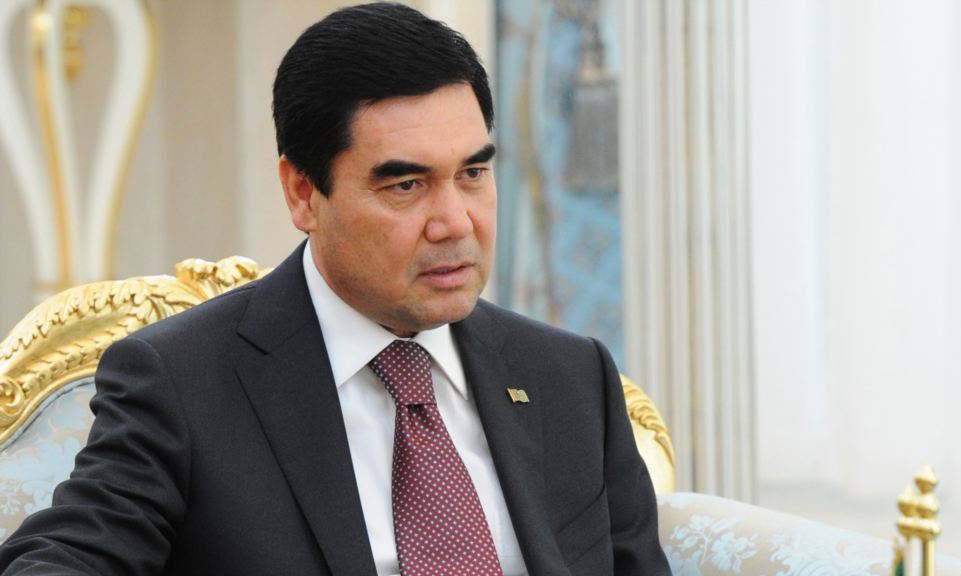Turkmen economy should be based on market relations

By Kamila Aliyeva
Supporting the entrepreneurship and private sector remains one of the most prioritized areas in terms of the large-scale economic reforms carried out in Turkmenistan.
The state will continue to support entrepreneurship, promote the development of small and medium-sized enterprises, said Gurbanguly Berdimuhamedov.
President Berdimuhamedov, addressing a government meeting, stressed that the national economy of Turkmenistan should be based on market relations.
The draft state budget for 2018 topped the agenda of the meeting, the Turkmen Dovlet Khabarlary reported on September 27.
The Turkmen president noted that during the draft state budget’s preparation, special attention should be paid to increasing the volume of loan funds directed to the growth of the national economy.
In this regard, Berdimuhamedov said, it is necessary to ensure measures on stimulating, establishing and developing small enterprises. It is also necessary to increase the volume of loan funds allocated for the population, improve the quality of banking services and ensure the availability of interest rates on loans, the Turkmen president added.
Turkmenistan’s private sector of economy accounted for 62.3 percent of GDP in 2016.
Turkmenistan has embarked on a policy of gradual transition to market economy. A number of measures, including denomination of the national currency and switching to the international accounting standards, have been implemented in the country.
At this stage, a regulatory and legal framework and conditions for free wholesale trade are being created while commodity and raw materials, currency and labor exchanges have been formed. The goals are set for the establishment of market infrastructure, commodity market, stock market, securities market, information, consulting and audit centers and other institutions in the country.
Ashgabat also follows a course to diversify the local economy. The textile and oil products industry has advanced while the oil and gas and chemical industries and the construction materials industry are actively developing. The private sector is entrusted to develop the electronic industry.
The International Monetary Fund (IMF) in late March drew attention to the fact that Turkmenistan needs to improve its business and regulatory environment in order to support the further development of the private sector in a difficult external environment in order to maintain dynamic, sustainable and comprehensive growth.
Effective implementation of reforms of state-owned enterprises and privatization, greater efficiency of public spending, and continued focus on social protection and human development outcomes are also required for Turkmenistan.
The economical well-being of the country is influenced by multiple factors including its richness in terms of energy resources. In this regard, Turkmenistan remains the key holder of gas in the Central Asian region.
Despite low global energy prices and stagnation in Turkmenistan’s trading partners, the government reported growth as broadly stable in the first half of 2017 at 6.5 percent, up from 6.1 percent in the same period last year, according to ADB.
On the supply side, expansion came mainly from outside the hydrocarbon sector, with services rising by 9.0 percent on gains of 10.9 percent in transport, 9.4 percent in trade, 4.1 percent in construction services, and 10.3 percent in other services. Agriculture expanded by 3.8 percent, and industry by 3.2 percent. On the demand side, public and foreign direct investment supported growth. Gross investment is expected to remain sizable, equal to 42 percent of GDP, but less than last year, estimated at 47 percent, ADB forecasts.
Turkmenistan ranks fourth in the world in terms of the volume of natural gas reserves, according to BP. Therefore, the country strives to diversify its export routes. Today the three main export routes of the country are Central Asia – Center Pipeline (CAS) to Russia, Central Asia – China pipeline (CACP) and two routes to Iran, which are Korpedzhe-Kurt Kui (KKK) and Dauletabad-Sarakhs-Khangiran pipelines.
Turkmenistan lost Russia as a customer a year ago, and has since provided gas only to China and Iran. The country is considering the European market as one of the most promising areas of gas supply.
---
Kamila Aliyeva is AzerNews’ staff journalist, follow her on Twitter: @Kami_Aliyeva
Follow us on Twitter @AzerNewsAz
Here we are to serve you with news right now. It does not cost much, but worth your attention.
Choose to support open, independent, quality journalism and subscribe on a monthly basis.
By subscribing to our online newspaper, you can have full digital access to all news, analysis, and much more.
You can also follow AzerNEWS on Twitter @AzerNewsAz or Facebook @AzerNewsNewspaper
Thank you!
